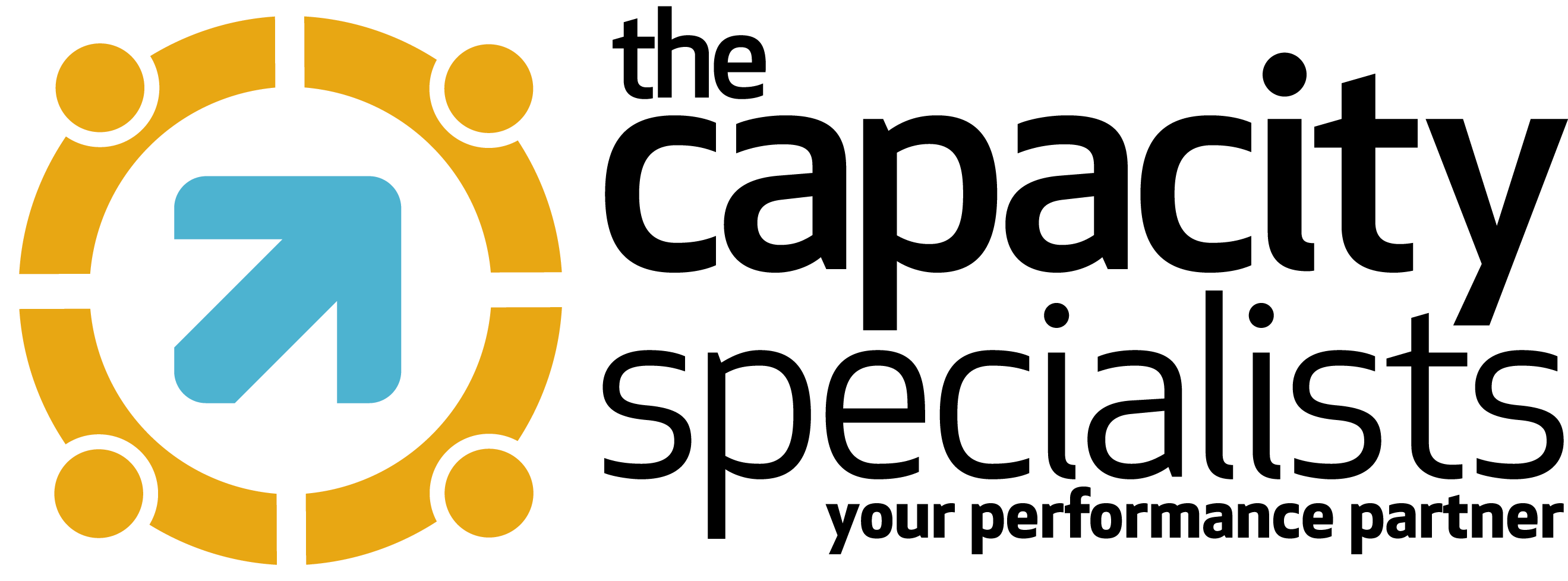5 Examples of Areas of Gamification in Corporate Training
Gamification is one of the most discussed topics in the professional development community today. This article explains everything you need to know about the corporate use of gamification – how it works, how it’s used, and how you can start using gamification in your own organization.
In today’s performance-driven culture, organisations need an added advantage or a step up from their competitors to succeed and thrive. In the corporate world, having an employee base that is agile and competitive is crucial to corporate success. It is no longer about just serving the customer, but how can we delight the customer and that requires a total mindset shift.
Learning and development leaders are key to this shift, and they have the added responsibility of understanding the organisation’s learning gaps and identifying the right solutions to drive more employee accountability and performance.
But before we start, what Is Gamification?
Gamification is an approach of adding game-like elements to things that typically aren’t “games”. It is like gaining points/scores by performing tasks that help you learn more in less time. A gamification approach to learning will help get more out of your training by giving you fun goals that build over time for a more efficient learning experience. Before long, you’ll be using your new skills in the real world!
In the case of corporate training, gamification counts points, badges, and other game facets to otherwise traditional training methods, offering people a new approach to learning. Although gamification has been the central topic for several decades, it’s also becoming recognised as a preference for training in the workplace. Learning and development professionals have an added tool to their toolbox and this is a future game changer for organisations.
5 Areas of Gamification/Game-based learning in the Corporate Training Sector
Corporate training is back in style, and there’s no better time to bring on a training expert who incorporates corporate training with technology. Corporate training has to be innovative, engaging, and compelling to get the undivided attention of workers. Studies show that over the last decade, attention spans have dropped dramatically as people have moved to content platforms where the preferred content length is getting shorter and shorter.
Think of the old ways of consuming content from books, blogs or podcasts to newer platforms such as YouTube, Twitter and TikTok. The rage is all about short clips and even older platforms such as YouTube have started to diversify in YouTube Shorts.
As consumers of content, our attention spans have normalised to seeing content that is about 30 seconds to a minute long.
Understanding this shift and working around it is key to a successful and engaging learning experience for employees. Now, it must be said that corporate learning has to be about the depth and the core focus has to be on employee development, learning has to be bite-sized or ranging from 30 mins to an hour to drive engagement and learning retention.
Thus, we unite the two for clients who want to engage their teams at a deeper level and make sure they’re delivering the information from a fresh and exciting perspective while being immersive and engaging. Gamification is an evolutionary way to take your approach towards corporate training to a whole new level. You can technically gamify just about anything, but there are a few areas where it is more practical than others.
1 Recruiting / Onboarding
Why not make the recruiting process unique and fun? As we all know, new employees expect and require attention as much as possible. You will want them to know all about your organisation and how it is a great place for them to progress and grow, both personally and professionally.
If tasks are fun, they’ll strive to be the best they can, and you’ll have adequate employees from day one. You can add a points technique to workout quizzes, have people play games rather than just taking tests, and so much more.
Organisations such as Games for Business have developed customised solutions for clients all over Europe and with digital solutions, it provides clients with ever-valuable data on employees that enhance the future of onboarding. If you’re interested in a great case study, take a look at how DB Bahn in Germany overcame their train driver recruitment process using gamification.
2 Engagement / Interactiveness of Employees
Whether working across the hall or across the globe, we all want to feel a sense of belonging. As an agile team, we need to feel connected and supportive of one another to work effectively; and when engaging with games and fun activities – it has always proved to be effective. Having options for employees that are outside the classic domain of the learning classroom will enable them to enjoy the learning experience and move away from it being a check mark on their to-do lists.
Gamification can be used for simple one-day trainings or even as a fun way to have a team-building day, such as eVULX’s LeadPro Simulations. Having a variety of options for employees that range from soft-skill development to functional training is key to having a fresh option for learning and embedding the learning mentality into the organisational DNA. Given the options available in the market, there are endless options to digitise and create game-changing solutions for employees.
One option for organisations is to play around with learning formats that range from simple gamification simulations to immersive stories that teach core business skillsets. At eVULX, solutions such as InsideRisk: Shadows of Medellin use traditional storytelling but use digital formats to reach large audiences. Naturally, as human beings, we gravitate to great stories and a solution such as InsideRisk has had great success in the corporate world. It’s about creating a lasting learning impact and doing it with the highest level of quality and execution.
3 Promotion of Sales Funnel
Growth of sales is the spine of all well-known companies. However, traditional ways of sales training are not practical considering the current trends of digital marketing. People have been utilising sales contests, challenges and gift giveaways to enhance their sales. What matters is how interactive these gamification approaches are. There are multiple options for gamification to be adopted in the sales process within any organisation and there are solutions that can make the process fun and engaging rather than dull and stressful.
As sales and reaching customers is imperative for corporate growth, considering the impact an organisation’s sales team has on its bottom line, investments in this area can be a game changer for the industry and certainly for the organisation.
4 Subservience
Compliance training is one of the most tiresome and challenging training modules for any association. It can be fairly challenging to employ fun ways to train people on rules, guidelines, laws, and other obedience issues. As such, there are multiple approaches you can utilize by gamifying training, such as creating games or having little competition.
Developing a custom solution might be the way to go for an organisation that has the right size and scale and unique options exist to gamify the experience. The option to embed the company’s standard operating procedures (SOPs) into the process makes the entire solution more effective and long-lasting.
An example of this approach might be in cyber security training which is becoming more and more relevant in today’s world context. If you are a financial services organisation, this is an imperative knowledge skillset that your employees need and even though the process can be dull, it can be gamified to drive the right learning outcomes. Games for Business developed such a solution for Cyber Services and its impact on the learning experience has been totally transformed for employees and for the organisation!
5 Leadership Training
Leadership is about creating an engaging atmosphere. Building and maintaining a strong team is one of the most critical success factors for a manager/leader. The ability to inspire, manage conflict, and encourage personal development are skills that separate good managers from great ones. Yet there can be a reluctance among management teams to engage in training or activities that appear to be frivolous – or worse yet, might send a negative message.
Building a team with confidence and trust requires good frameworks that take the pressure off of leaders. While we’re all familiar with traditional exercises like personality tests and communication quizzes, gamification approaches can prove to be more effective at developing leadership skills. In the corporate training sphere, having options that range from 30-minute sessions to 2-day workshops allow employees to have sensible options that fit their work schedules.
A strong focus on soft-skill performance development is key to having an agile workforce that can take on new challenges while managing the organisation’s expectations. In today’s game-based learning world, there are countless options for organisations to continue to upskill their employee base, ranging from classic leadership and influencing simulations all the way to design thinking digital simulations.
Most of these solutions are digital so having a mobile and geographically diverse team is no longer a viable obstacle to learning. Learning can be facilitated or can be self-facilitated. The options are endless. The real question for L&D professionals is to identify the skill gaps in the company, align the gaps to the core strategic imperatives of the business and to source the right partner to gamify the learning. Lastly, the impact of employee simulation choices is also documented so better reference points can be made for future sessions.
Digital solutions provide significant data capture, and this allows organisations to flex and adapt their learning strategy as they go. Gone are the days when a return on investment (ROI) is a purely theoretical concept in L&D. It now can be quantified, analysed and compared across employees.
The Bottom Line
For employees and companies, gamification, and specifically gamification in learning is a game-changing solution. Whether you’re examining new ways to engage remote teams, a more suitable training plan for the future, or even just a way to enhance your company culture, this is one way to get there. Using data analytics and having more reference points is the roadmap to a stronger and more clued-in organisation.
To check out all of the ways you can incorporate gamified features in your corporate training and start levelling up your business today, contact The Capacity Specialists – to help you with what you need. We have options for game-based learning solutions that focus on soft-skill development but do share with us your needs and we can help determine the right solution that not only impacts your organisation’s strategic goals, but more importantly, drives a strong learning mindset among your employee base.
Are you unsure about what solutions are available, we can help, so feel free to reach out and we’d be happy to have a chat and work on potential solutions together.
Arun Nagarajah is the CEO of eVULX, a digital learning games development company headquartered in Kuala Lumpur.
Related Posts
Leave a Reply Cancel reply
Categories
- Uncategorized (12)




